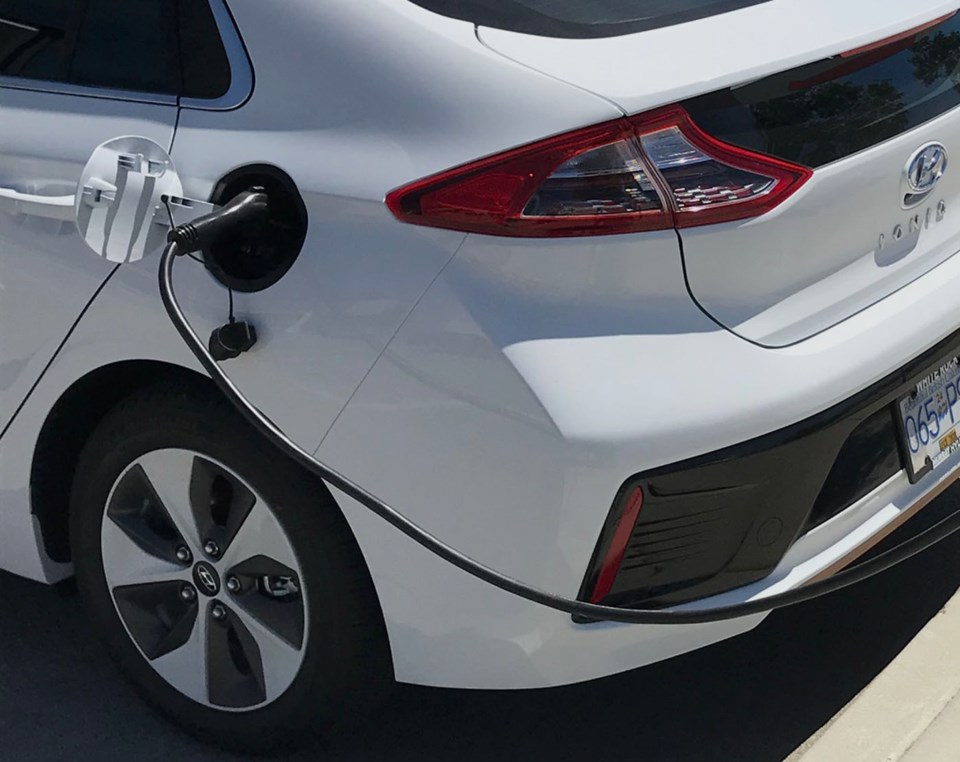Last month, the provincial government introduced legislation that will prod along zero-emissions vehicle (ZEV) adoption at a faster rate in B.C. than it already has, with amendments accelerating sale and lease requirements by five years.
Under the legislation introduced Oct. 24, automakers are under the gun, with the requirement that all sales and leases of new cars be made up of ZEVs rocketing all the way to 100 per cent by 2035.
The legislation moves up the sales requirements by five years, superceding previous plans by Victoria to meet the target by 2040.
Uptake of electric vehicles in B.C. has been ahead of the rest of Canada for some years, with the most recent numbers from the province saying there are almost 130,000 registered ‘light duty’ (passenger) electric vehicles now, compared to only 5,000 in 2016.
ZEVs need infrastructure though, and according to the Resort Municipality of Whistler (RMOW), it has plans to ensure it can both meet its own vehicle adoption while also supporting more widespread ZEV use in the community under the accelerated timeline.
The RMOW adopted its EV strategy recently, which includes action items to encourage greater access to EV charging at residents’ homes, expand the public charging network, and speed up the RMOW’s adoption of EVs in its own municipal fleet.
“One of the initiatives outlined in Whistler’s EV Strategy is expansion of the municipal EV charging network,” said a municipal communications official when asked about whether the new provincial legislation changed the timeline for the RMOW.
“The RMOW will be installing 42 new Level 2 and Level 3 chargers, now through 2025. You may have seen the 10 new chargers installed in Day Skier Lot 4, with more to come in other key locations like Bayley Park in Cheakamus Crossing.”
According to the RMOW, the strategy adopted in June 2022 was future-proofed enough to account for fast uptake in the community.
“The CleanBC Roadmap to 2030 detailed new light-duty ZEV sales targets in line with the amendments to the ZEV Act, and these targets were used to forecast anticipated future public charging infrastructure needs in Whistler,” the municipality said.
“Whistler is a four-season resort that receives over 3 million visitors annually and is also a drivable market to regions of B.C. with the highest EV adoption rates. All these factors were considered in the Whistler EV strategy, which positions us well for the accelerated adoption of ZEVs.
Another major consideration for the RMOW is its own fleet; local governments replace their fleets on a rolling basis as vehicles reach the end of their operational lives.
Whistler council will be considering a Corporate Greenhouse Gas Reduction Plan in December that will include a specific ZEV fleet procurement plan that, if adopted, would bake in a long-term adoption plan for the municipality.
The RMOW already requires vehicle suppliers to provide electric options for vehicle classes the municipality wants to purchase, with the procurement procedure guidelines specifying that “environmental impact will be considered when purchasing products and services known to contribute to greenhouse gas emissions, energy/fuel consumption, air pollution, water contamination, landfill accumulation, or human toxicity.”
Under the current plans, capable and all-season EV options “receive a higher scoring in [RMOW] evaluations.”
As of October 2023, the RMOW’s fleet of vehicles includes six battery electric vehicles, two plug-in hybrids and nine hybrids, with plans for more to be added in the next year.




